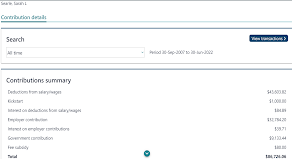What is the best type of mortgage? Why should we care? How do we know what to with our debt? Who will tell us?
Hopefully today we can shed some light on this, I had a house for quite sometime before I realised what was going on with these.
Everyone is different, how they keep their money is different. I have found heaps of crazy beliefs out there: from keeping it under the mattress to having some money in 10 different bank accounts at 10 different banks, just in case things fall apart.
If you have a mortgage, you are best to have all your bank accounts at one bank. All will become clearer as we go through this and look, yet again, at the example we have been using with the mortgage in the last few blogs. Are you ready? Let's go.
Let's imagine for a moment I have a few different bank accounts, I have a credit card, I have a bill pay account, I have a mortgage pay account, my kids have bank accounts, I have Kiwisaver with a provider, I have another two bank accounts at different banks for whatever reason, and I have a mortgage with the bank that would give me one!
First thing to do is, get everything in the same bank, yes the returns might be slightly different but if it is all together you get a better understanding of where you are, and that is going to help you here. Go to the bank you have the mortgage at, the hardest thing to transfer. Make sure all your accounts, kiwisaver and credit card are with the one bank and all loaded on your phone banking ap so you can see what is going on every day. That way there is no delay if you are transferring over from one to the other as well. Remember the goal is to keep as much money in the bank every day as you possibly can.
Then, with the exception of kiwisaver and your credit card balance, have a look at how much the DAILY total of the others is, what the fluctuation is. I understand that people get paid and the pay all goes out, I am one of those people, I understand. But if you look at the best day of the month when you add up all the balances and you might be surprised at how much is in the total of those accounts. This is even more if you have been using your credit card according to the last credit card blog. You might have, even as much as $10,000 coming and going over a month.
Let's use that as a figure, don't know if I have told you I like round figures. Let's imagine the total of savings and bill pay and normal accounts, because you use your credit card have around $10,000 in total.
If you think about that, there is $10,000 that is not working for you, yes it is sitting there, earmarked for other things but it really isn't working for you at all, and it could be.
Now let's shelve that for a moment. If we talk briefly about mortgage rates, as of today the variable rate at my bank is 7.74% and the fixed rate for one year is 6.74% There is not that much difference between the two sometimes it is much greater.
If you float (make revolving or offsetting on the variable rate), part of your mortgage that is three times the amount of the total of all of your accounts on one day. You will have (using our $10,000 example), a $30,000 revolving or offsetting mortgage with $10,000 in it!
So a revolving or offsetting mortgage works like an overdraft so if you have a $30,000 facility you don't pay interest on the full $30,000 like you would a fixed mortgage, you only pay on the difference between that and the $10,000, so $20,000 has interest charged on it. This is calculated daily, a variable mortgage is interest only, but you still try to aim for zero.
This means there is a variable rate charged at 7.74% on that $30,000 but the effective rate will only be 2/3 of 7.74 which is 5.15% which is substantially less than any fixed rate on offer.
Because these variable mortgages are treated like an overdraft you do naturally try to aim for a zero balance so it encourages you to save more, almost by accident. This also encourages you to keep some money in your bank account and use your credit card and only pay off as much as you need (not the minimum but the balance due) on the due date. Maximising what is offsetting your mortgage.
Lets Look at the example we have been using so far:
- $400,000 $1,885/mth 25 yrs 2.95% Interest paid over term of loan $166,147
- $400,000 $3,017/mth 25 yrs 7.74% Interest paid over term of loan $506,648
- $400,000 $2,696/mth 25 yrs 6.49% Interest paid over term of loan $410,550
- $400,000 $1,240/ftnt 25 yrs 6.49% Interest paid over term of loan $410,255
- $400,000 $1,217/ftnt 25 yrs 6.29% Interest paid over term of loan $395,381
- $370,000 $1,217/ftnt 21 yrs 6.29% interest paid over term of loan $297,849
- Payments saved over 4 years if $126,568
- $30,000 interest only, aiming for zero, 30 yrs 5.15% interest paid over term $28,942




I need help for my mortgage
ReplyDeleteHi there, feel free to email me at sarah@sarahssolutions.co.nz or PM me on facebook sarahssolutions :)
Delete